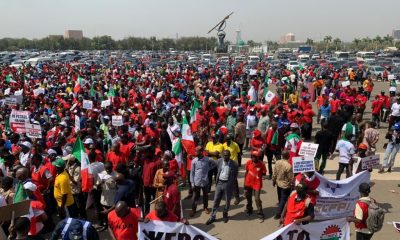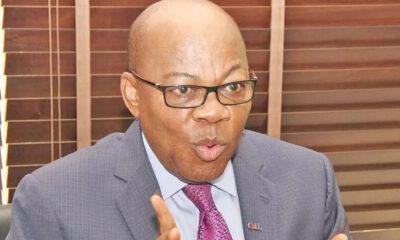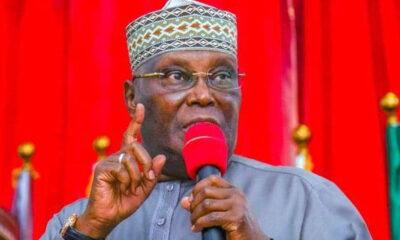metro
Electoral Bill: National Assembly to delete direct primary
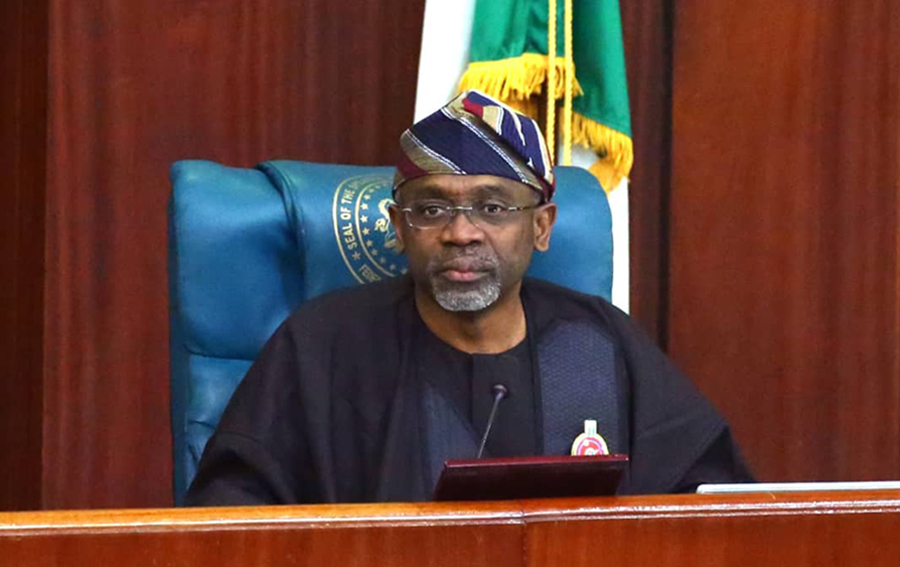
House of Representatives Speaker Femi Gbajabiamila yesterday spoke of how the National National Assembly plans to resolve the logjam over the Electoral Act Amendment Bill.
He hinted that lawmakers may drop the controversial clause from the Bill before passing it into law when they reconvene next month.
According to him, legislators could resort to the option, if they failed to muster the two-thirds majority votes needed to override President Muhammadu Buhari’s veto on the Bill.
Gbajabiamila listed the two options while fielding questions from reporters after commissioning some projects in his Surulere I Constituency in Lagos.
On December 20, President Muhammadu Buhari returned the Bill to the National Assembly, citing concerns about the inclusion of direct primary for political parties as reasons for declining assent.
The President’s decision led to crisis between the Presidency and the National Assembly which threatened to override the President.
Some critics have asked the lawmakers to override the Presidents.
READ ALSO:
- Buhari’s achievements in 2021: Full text of Lai Mohammed’s press conference
- NFF hires coach sacked by clubs, national teams for Super Eagles + Resume
- Christmas Day massacre: South African man charged with killing 7 members of his family
Acknowledging the calls from concerned stakeholders, Gbajabiamila said: “If you followed the history of the amendment of the direct and indirect primary bill, I initiated that amendment bill for a good reason and it is for people to participate in elections. These are the people you see around when you campaign every four years come rain, come shine.
“For me, it does not make sense that these people do not have a voice in who represents them. It is part of being used and I didn’t like that.
“Most of us are reformers and one of the ways to reform the system is to make more accountable and to make the people have a voice in who represents them as opposed to a few people sitting in the four corners of a wall and writing results.
“That is what the amendment was all about. Again, there is a process.
“The President has in his wisdom – and I believe he did it with all good intention based on advice that he got, he weighed everything carefully. You know the President has always been a man who, because of his popularity, enjoyed direct primaries, he liked it.
“But, I guess maybe times are different; he listened to people that he has employed to advise him and it appears that they advised him against the amendment.
“So, there is a process, we’ll return to the house and determine if those reasons sit well with the National Assembly, in which case we will at that point consider removing that clause and passing the bill so that we do not throw away the baby with the bath water.
“But then, it is not a decision for me to make; it is a decision for the entire National Assembly. If they determine that the reasons are not good enough, then there is a process as prescribed by the Constitution. Which way the pendulum is going to swing? I have no idea until that time.
“I cannot read the minds of members. We need two-thirds to be able to override the veto. There is a reason why the Constitution prescribes two-thirds. Veto is not something you easily override. If they can muster enough, if they believe that it is in the best interest of Nigeria, then that is what we will do, otherwise, we will take out the clause and pass the bill as it is, so that we have a law and what Nigerians deserve is a credible electoral law and process and they must get it.”
Backing the 20 per cent police pay rise recently announced by the Presidency, the Speaker noted there was no provision for its implementation in the 2022 budget passed and transmitted by the lawmakers to the President for assent.
READ ALSO:
- Our Senior Officers Conniving With Oil Thieves – Navy
- Over 22,000 Terrorists Surrendered, 1,000 Killed In 2021 – FG
- Six multinationals to pay N249bn oil proceeds in January – NNPC
Gbajabiamila called for an extra-budgetary provision since the new salary structure will take effect from next month.
The legislators transmitted the 2022 budget to President Buhari for assent alongside a letter dated December 24.
Gbajabiamila said: “I believe at the time when the increase was done – and I give kudos to the President for that, it’s been a long time coming and well deserved for the police; They are out there doing everything they can to keep us safe. No amount of money will be too much for policemen.
“At the time that decision was made, I believe we had gone way into the budget. We were almost at the tail end of the budget. So, I believe that a supplementary budget will be brought that will accommodate that increase.
“It will be brought and it will be accommodated. There is no point in announcing an increase without any money to pay for it. I believe that the president will do that.”
The projects inaugurated are: the Obele Mini Stadium on Dosunmu Road; Adedoyin Road, Ojikutu; Ishola Road by Randle; Rasaq Balogun Mini Stadium; Razaq Balogun Road and Adeniran Ogunsanya, Surulere, Lagos.
Gbajabiamila said of the projects: “What is my job as a legislator? It is to represent the people; both those who voted me in and those that did not. That’s what we’ve been striving to do over the years, even before I became speaker, from my first year in office. That’s all I’ve been doing.
“You said 137 roads, but if you count from when I was first elected to the House of Representatives, it goes way beyond that. We give God all the glory for what we have been able to do. We made promises and we delivered.”
The Nation
metro
$6bn fraud: Judge scolds Agunloye’s counsel over delay tactics
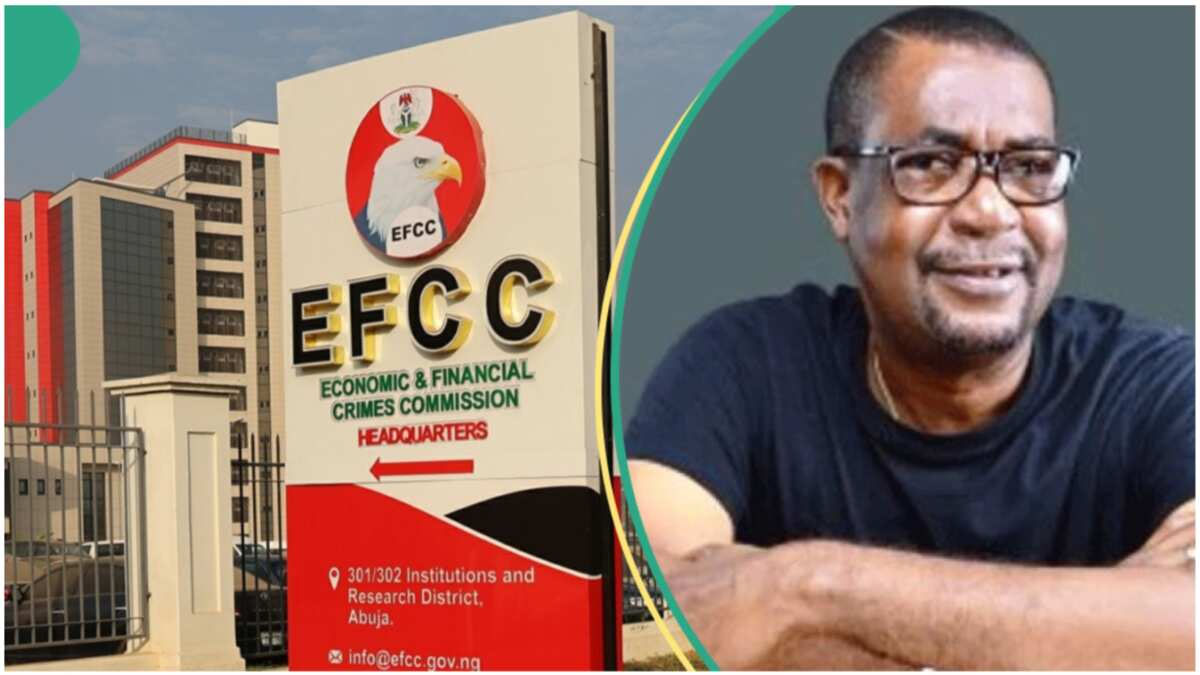
$6bn fraud: Judge scolds Agunloye’s counsel over delay tactics
Justice Jude Onwuegbuzie of the Federal High Court, Apo, Abuja On Thursday, chastised Adeola Adedipe, SAN, counsel to former Minister of Power, Olu Agunloye, for using delay tactics to slow the pace of the former minister’s prosecution.
Agunloye is being prosecuted by the Economic and Financial Crimes Commission, EFCC, on seven counts of official corruption and fraudulent award of the Mambilla Power Project contract worth $6 billion.
During Thursday’s hearings, the court observed that the defence counsel has been in the habit of making excuses based on Agunloye’s health and age, as well as filing various motions, ensuring that little progress has been achieved in the trial.
Addressing the defence counsel, Justice Onwuegbuzie stated that “My principle of justice is that of no delay. The other time you brought the issue of amicus curiae and wasted the time of the court. You should also know that in my court I don’t read processes.
READ ALSO:
- Emefiele printed new naira notes different from what Buhari approved – Ex-CBN official
- Train attack: ECOWAS court dismisses SERAP suit against FG
- Court orders varsity to pay lecturer N40m compensation for wrongful dismissal
“If you need time to serve processes, it must reach me on time, and your colleague must also be duly aware in time. There must be mutual respect. Do not come and serve processes in court; I don’t take that in my court,” he said.
Prosecuting Counsel Abba Mohammed, SAN, informed the court at the start of proceedings that the business of the day was the adoption of the prosecution’s application for the amendment of the charge, which was filed on October 30, 2024, to which the defence responded with a counter-affidavit and a request for an adjournment to allow the prosecution to study the affidavit.
Justice Onwuegbuzie adjourned the case until November 28, 2024, to rule on the adoption of the application.
$6bn fraud: Judge scolds Agunloye’s counsel over delay tactics
metro
Emefiele printed new naira notes different from what Buhari approved – Ex-CBN official
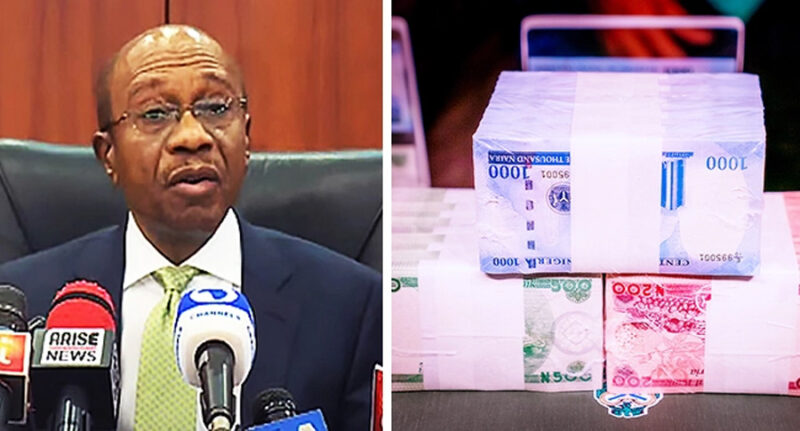
Emefiele printed new naira notes different from what Buhari approved – Ex-CBN official
The trial of former Central Bank of Nigeria (CBN) Governor, Godwin Emefiele, continued at the Federal Capital Territory (FCT) High Court in Maitama on Thursday, November 14, 2024.
A former CBN Deputy Governor, Kingsley Obiora, who served in the policy department, testified that the newly printed naira notes issued during Emefiele’s tenure deviated from the approval granted by then-President Muhammadu Buhari.
In his testimony before Justice Maryann Anenih via Zoom, Obiora disclosed, “the approval by then President Muhammadu Buhari was different from what was eventually produced,” according to a statement from the Economic and Financial Crimes Commission (EFCC).
Obiora, responding to evidence presented by prosecution counsel Rotimi Oyedepo SAN, explained that he noticed discrepancies when comparing the naira notes in circulation with the President’s original directive.
During his seven-year tenure at the CBN, Obiora served on the Committee of Governors (COG), which he described as a body comprising “the governor, four deputy governors, and the director of corporate services.” He clarified, “The governor is the Chairman of the Committee, and during my tenure as Deputy Governor, Emefiele was our Chairman.” Obiora said the Committee met every Wednesday to address significant policy matters.
READ ALSO:
- Train attack: ECOWAS court dismisses SERAP suit against FG
- Court orders varsity to pay lecturer N40m compensation for wrongful dismissal
- Worry over cash scarcity in banks as farmers mop up naira
Obiora recalled the initial introduction of the redesign plan during an event marking the one-year anniversary of the e-naira in Lagos on October 25, 2022. “The governor called all four deputy governors into a huddle and informed us of the plan to redesign the currency,” he said, expressing immediate concerns, as he felt “the event itself may not be the appropriate place to announce such a major policy.” He advised that the policy undergo further scrutiny before any public announcement.
Despite his reservations, Obiora noted that Emefiele proceeded with the plan, formally presenting it to the COG on October 26, 2022. “The governor mentioned that we had already had the president’s approval for the policy,” he stated, adding, “The deputy governor in charge of currency operations presented a memo, and it was discussed, deliberated upon.” Following this, a press conference was held to announce the redesign.
Obiora explained that the CBN Board was formally briefed on the naira redesign months later, in mid-December 2022. He said, “The policy was discussed at the board level mid-December. The board did not sit as day-to-day management but instead gave policy directions.” Obiora clarified that “the board’s involvement in the policy was limited to endorsing the COG’s prior decision, not initiating it.”
During cross-examination, defense counsel Olalekan Ojo, SAN, questioned Obiora about the timing of the board’s formal involvement. Ojo suggested that the December meeting “conforms with the naira notes currently in circulation,” to which Obiora responded, “Yes, sir.” He noted there had been no indication or directive from former President Buhari challenging the redesign.
Reflecting on past experiences with currency design, Obiora mentioned that while he was with the bank during the introduction of a redesigned N100 note in 2014, he was not directly involved in its development.
After delivering his testimony, Justice Anenih discharged Obiora and adjourned the case to December 4, 2024, and January 21, 2025, for further proceedings.
Emefiele printed new naira notes different from what Buhari approved – Ex-CBN official
metro
Train attack: ECOWAS court dismisses SERAP suit against FG

Train attack: ECOWAS court dismisses SERAP suit against FG
The Community Court of the Economic Community of West African States (ECOWAS Court) has rejected a suit filed by a group of Nigerian activists, the Socio-Economic Rights and Accountability Project (SERAP) over an attack by bandits on an Abuja-Kaduna train on March 28, 2022.
The court held that it lacks jurisdiction over the case because relevant ingredients that could qualify it to be entertained as a public interest litigation were missing.
SERAP filed the case after bandits attacked the Abuja-Kaduna passenger train in 2022.
In the attack, armed assailants bombed the train carrying over 970 passengers on the Abuja-Kaduna rail line near Rigasa in Kaduna.
The attack led to numerous fatalities, injuries, and abductions.
SERAP, by its case, sought to hold the government of Nigeria accountable for alleged human rights violations in relation to the terrorist attack.
The organisation claimed, among others, that the attack was the result of the state’s inability to provide tight security for the passengers.
READ ALSO:
- Court orders varsity to pay lecturer N40m compensation for wrongful dismissal
- Worry over cash scarcity in banks as farmers mop up naira
- FG announces plans to borrow N13.8tn for 2025 budget
SERAP argued that Nigeria’s alleged lack of measures to avert the attack violated the rights of passengers to life, security, and dignity.
It prayed for a N50 million compensation for each of the passengers and their families.
In a judgment delivered on Wednesday, the regional court declared the suit inadmissible due to lack of victim status required for public interest litigation.
A statement by the court said the judgment was delivered by Justice Dupe Atoki.
It added: “The court recognised its jurisdiction to hear the case as it involved potential human rights violations within a member-state, in accordance with Article 9(4) of the ECOWAS Supplementary Protocol.
“However, the court found the claim inadmissible on grounds that it failed to meet the victim status requirement essential for litigation under Article 10(d) of the same Protocol.
“In its findings, the court said that SERAP claimed to be acting in public interest, citing previous incidents of terrorism in the region, including attacks on educational institutions and transportation services.
“However, the court determined that the case did not meet the criteria for a public interest action, or actio popularis, which requires that the alleged violations affect a large, indeterminate segment of the public or the general public itself.
“The Court highlighted that: The victims of the March 28 attack were identifiable individuals rather than an indeterminate public group, making the claim unsuitable as a public interest litigation.
“The reliefs sought, including specific monetary compensation, were directed at the identifiable victims of the attack rather than the public at large.
“Members of the three-member panel of the court were Honourable Justice Ricardo Cláudio Monteiro Gonçalves(presiding judge), Honorable Justice Sengu Mohamed Koroma (panel member), and Honorable Justice Dupe Atoki (judge rapporteur).”
Train attack: ECOWAS court dismisses SERAP suit against FG
-

 Sports13 hours ago
Sports13 hours agoBREAKING: Super Eagles qualify for AFCON 2025
-

 International3 days ago
International3 days agoBelgium University offers scholarship up to €12,000 for Master’s students
-
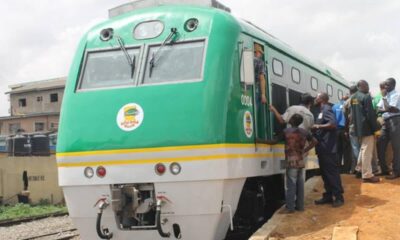
 Railway3 days ago
Railway3 days agoNigerian railway adds extra train to Friday, Saturday trips on Lagos-Ibadan route
-

 Aviation15 hours ago
Aviation15 hours agoDisaster averted as bird strike hits Abuja-Lagos Air Peace flight
-
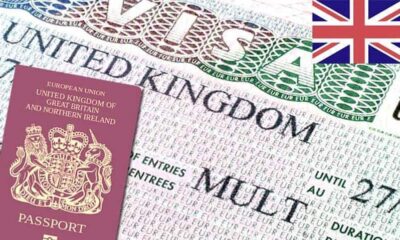
 International3 days ago
International3 days agoUK announces 45,000 seasonal worker visas for 2025
-

 Education2 days ago
Education2 days ago12-year-old Nigerian girl Eniola Shokunbi invents air filter to reduce spread of diseases in US schools
-

 Business3 days ago
Business3 days agoTop 5 crypto apps that work with Nigerian Bank accounts
-
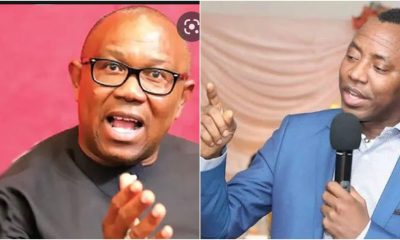
 Politics2 days ago
Politics2 days agoWhy I can’t form coalition with Peter Obi – Sowore

